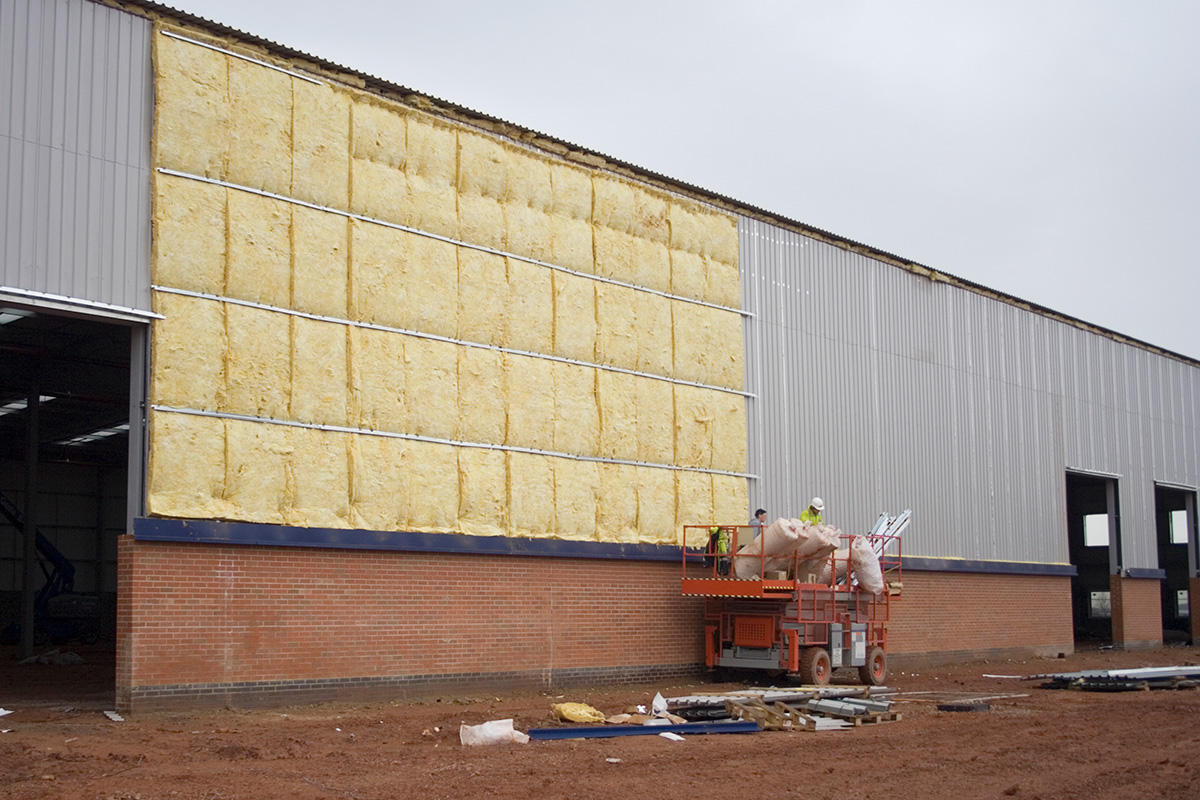
Wall Insulation
If the building has solid walls, then you can go for a solution like internal wall insulation. Unlike brick walls, where cavity wall insulation may not be suitable for solid walls. Generally, about 35 percent of the heat is absorbed by the walls of a house and proper insulation installation will ensure that you will be able to reduce the energy bills and maintain a more consistent temperature overall.
Attic Insulation
InsulSafe is an industry-leading fibre glass blowing insulation used in residential and commercial construction as a thermal and acoustical insulation. It is unbonded, white, virgin fibre glass designed for pneumatic installation in open areas and treated to minimize dust and static electricity during application.
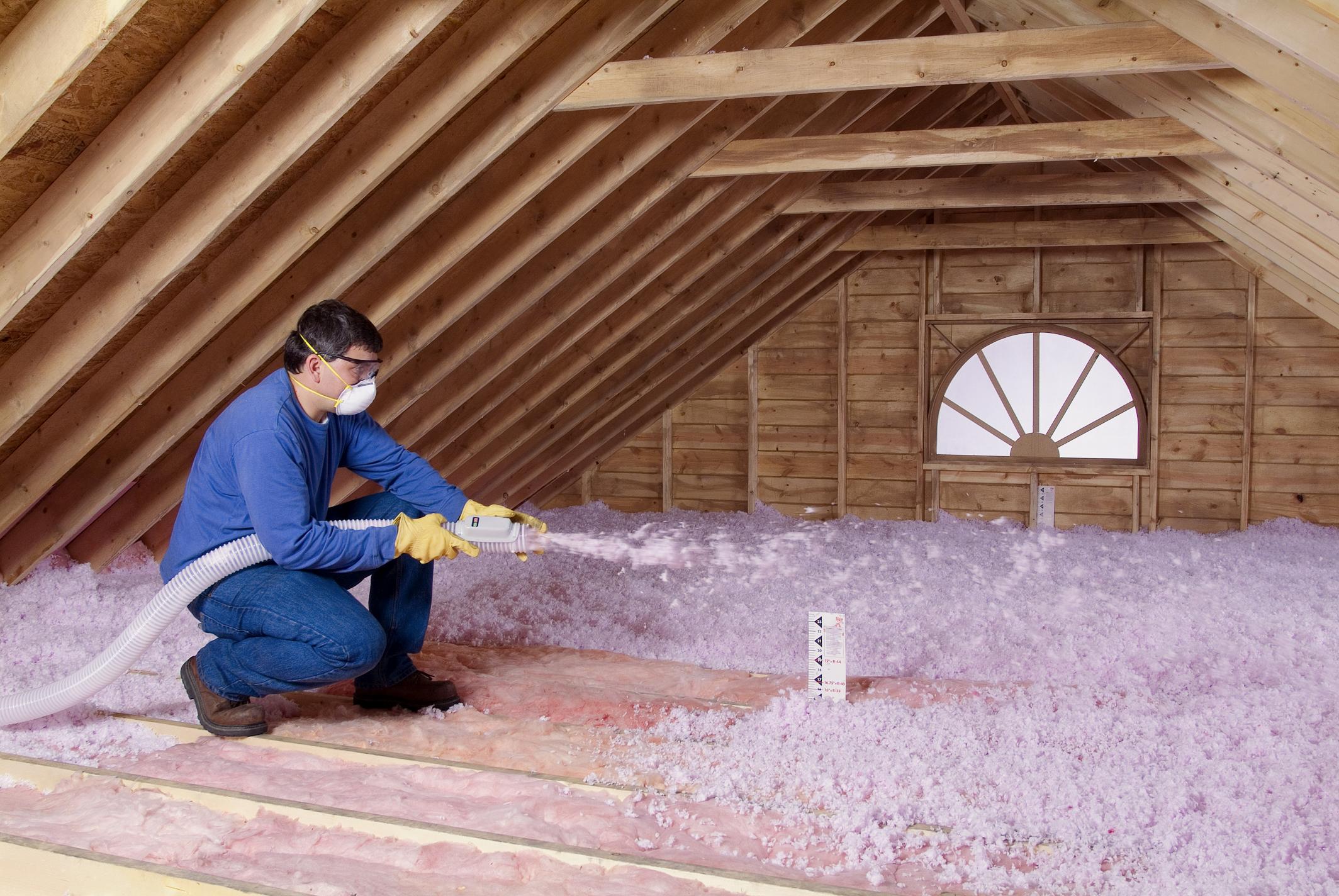
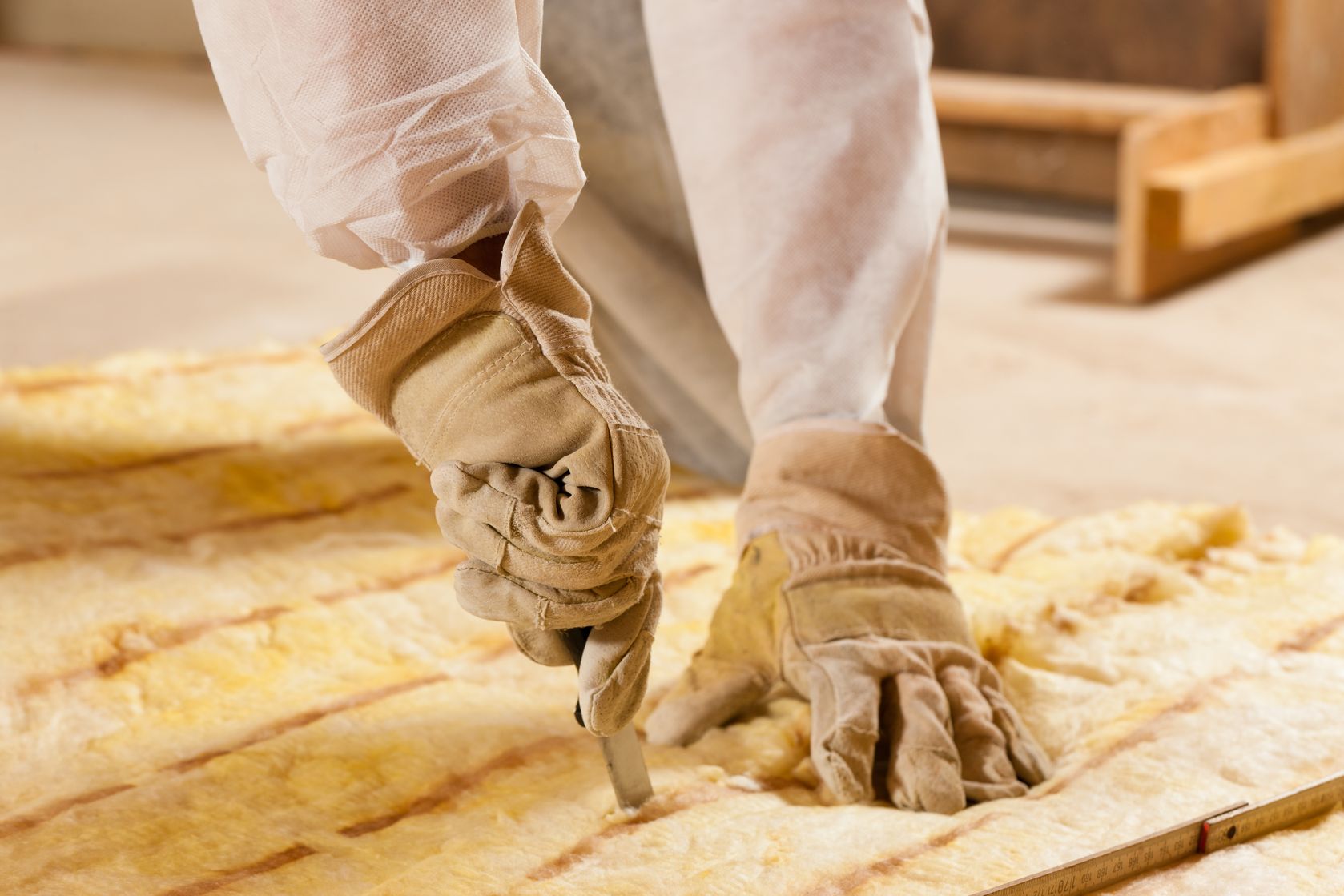
Ceiling and Roof Insulation
Cellulose insulation is a safe and green choice made from up to 85% recycled paper that has been treated with boric acid and borate to make it flame, pest and mould resistant. It is one of the most eco-friendly blown-in insulations in existence because not only it is made from a high percentage of recycled materials, it is very energy-efficient to produce.
Commercial Flat Roofing
The primary issue to consider with a flat roof is drainage issues. While flat roofs do drain water off, they are not as efficient at doing so as pitched styles. This buildup of water tends to break down roofing materials faster leading to more repairs.
Many businesses are built with a flat roof, which means it is important for a professional to regularly inspect and repair it due to the increased risk of piling snow and leaks. A built up roof or (bur) is an old roofing system that is still being used today for flat roofs. It is a roofing system that consists of multiple layers of paper felt, imbedded with asphalt, glued together with hot tar, and protected from the sun by a topping of gravel.
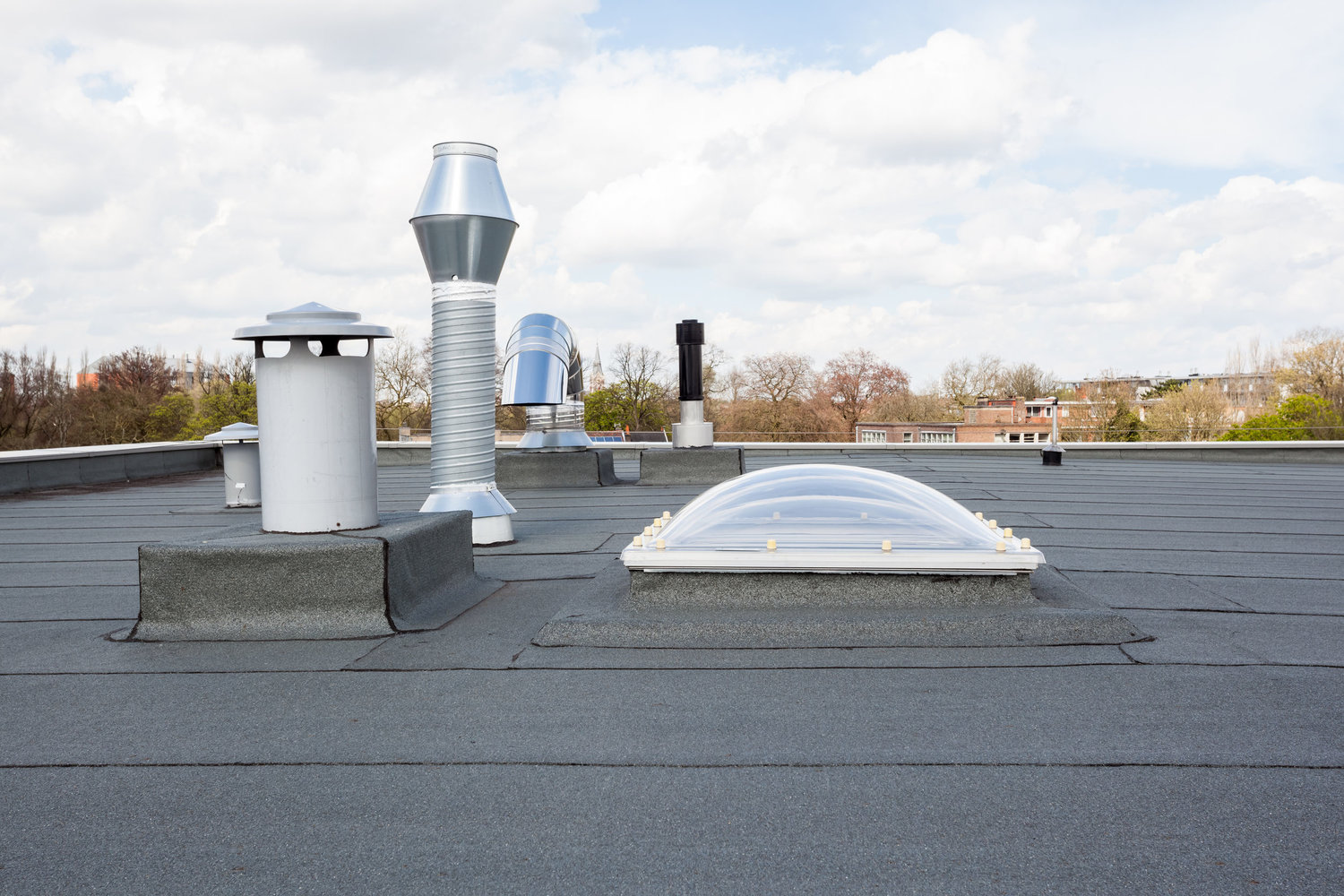
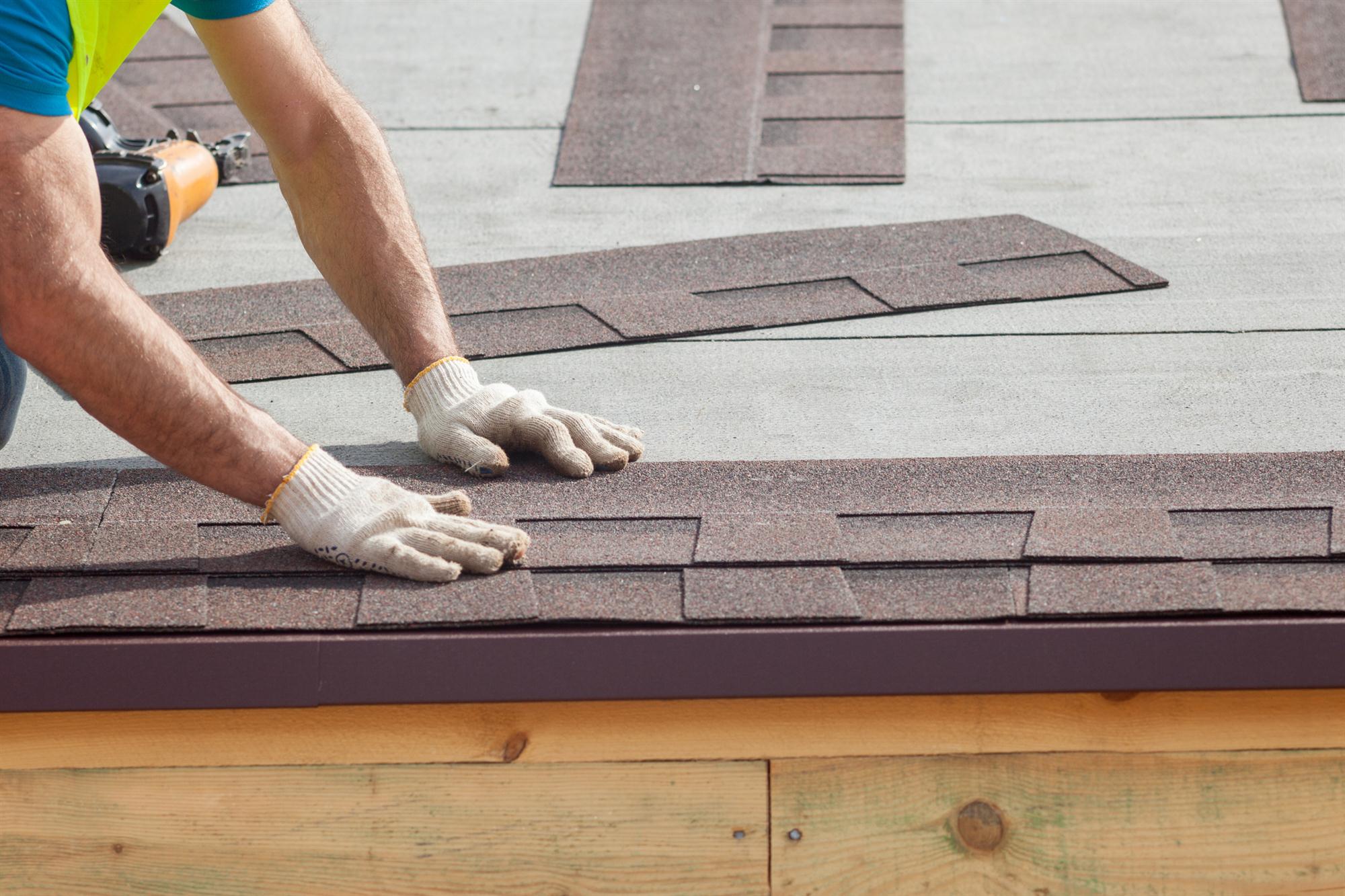
Shingle Roofing
All shingle roofs are installed from the bottom upward beginning with a starter course and the edge seams offset to avoid leaks. Many shingle installations benefit from being placed on top of an underlayment material such as asphalt felt paper to prevent leaks even from wind driven rain and snow and ice dams in cold climates. At the ridge the shingles on one side of the roof simply extend past the ridge or there is a ridge cap consisting of boards, copper, or lead sheeting. An asphalt shingle roof has flexible asphalt shingles as the ridge cap. Some roof shingles are non-combustible or have a better fire rating than others which influence their use, building codes do not allow the use of shingles with less than a class-A fire rating.
Balcony Waterproofing
When it comes to the upkeep of a building, the balcony often tends to be overlooked or underestimated. As a responsible business owner, it's crucial not to underestimate the significance of balcony waterproofing and concrete maintenance. Prioritizing preventative measures today can help you avoid costly repairs and ensure the longevity of your asset. Read on to understand why balcony waterproofing and concrete maintenance are essential for your business.
Many businesses are built with a flat roof, which means it is important for a professional to regularly inspect and repair it due to the increased risk of piling snow and leaks. A built up roof or (bur) is an old roofing system that is still being used today for flat roofs. It is a roofing system that consists of multiple layers of paper felt, imbedded with asphalt, glued together with hot tar, and protected from the sun by a topping of gravel.

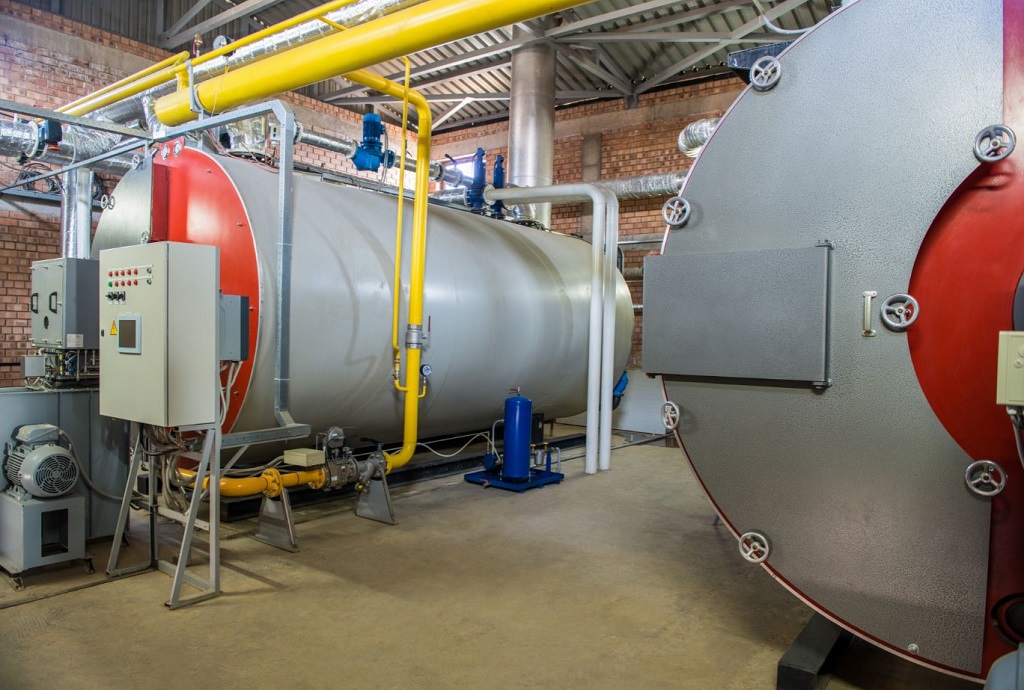
Boiler Room Waterproofing
Your boiler room is a critical area of your facility that houses expensive and essential equipment. However, it is also highly susceptible to water damage, which can result in costly repairs, downtime, and potential safety hazards. That's where we come in.
Boiler Room Waterproofing specializes in providing comprehensive and reliable solutions to protect your boiler room from water infiltration. With our expertise and techniques, we ensure that your boiler room remains dry and secure, allowing your operations to run smoothly and efficiently.
Exterior Caulking
Expertise and Experience: Professional caulking contractors have the knowledge, skills, and experience to identify and address potential problem areas effectively. They understand the unique characteristics of different materials and surfaces and can select the appropriate caulking products and techniques for optimal results.
Quality Materials and Techniques: Professionals utilize high-quality caulking materials that are specifically designed for exterior applications. These materials offer superior durability, weather resistance, and flexibility to accommodate expansion and contraction of building materials over time.
Proper Application: Achieving a seamless and long-lasting caulking job requires precision and attention to detail. Professionals have the expertise to properly prepare surfaces, remove old caulking, and apply the new sealant with precision, ensuring a tight and reliable seal.
Time and Cost Savings: Professional caulking services save you time and effort by completing the job efficiently and effectively. They also help prevent costly repairs and damage caused by water infiltration or improper application. Investing in professional caulking upfront can save you significant expenses in the long run.
